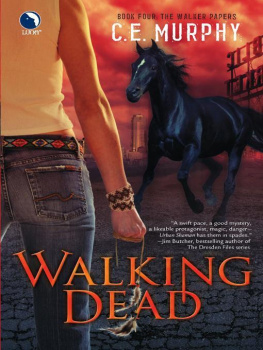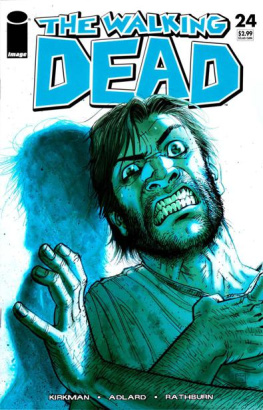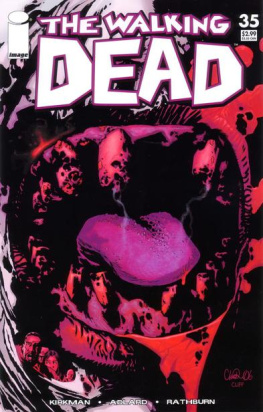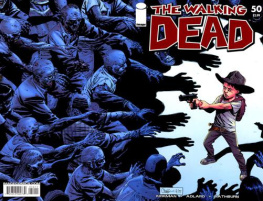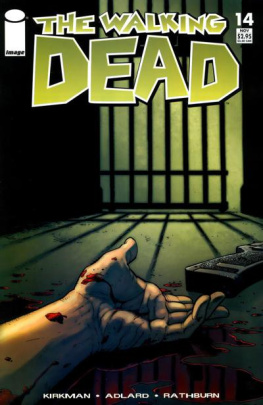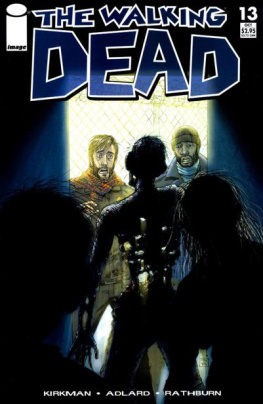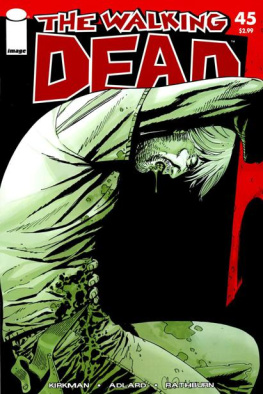Dead Woman Walking
This book is dedicated to the memory of:
Louise Masset
Ada Williams
Amelia Sach
Annie Walters
Emily Swann
Leslie James
Edith Thompson
Louie Calvert
Ethel Major
Dorothea Waddingham
Charlotte Bryant
Margaret Allen
Louisa Merrifield
Styllou Christofi
Ruth Ellis
First published 2000 by Ashgate Publishing
Reissued 2019 by Routledge
2 Park Square, Milton Park, Abingdon, Oxon, OX14 4RN
52 Vanderbilt Avenue, New York, NY 10017
Routledge is an imprint of the Taylor & Francis Group, an informa business
Anette Ballinger 2000
All rights reserved. No part of this book may be reprinted or reproduced or utilised in any form or by any electronic, mechanical, or other means, now known or hereafter invented, including photocopying and recording, or in any information storage or retrieval system, without permission in writing from the publishers.
Notice:
Product or corporate names may be trademarks or registered trademarks, and are used only for identification and explanation without intent to infringe.
Publishers Note
The publisher has gone to great lengths to ensure the quality of this reprint but points out that some imperfections in the original copies may be apparent.
Disclaimer
The publisher has made every effort to trace copyright holders and welcomes correspondence from those they have been unable to contact.
A Library of Congress record exists under LC control number:
ISBN 13: 978-1-138-73700-6 (hbk)
ISBN 13: 978-1-315-18560-6 (ebk)
During interviews for academic posts and while seeking a publisher for this book this research was repeatedly referred to as falling outside the mainstream, unusual and off the beaten track. One established publishing company informed me that we dont do history; another was of the opinion that there would not be enough demand for a book on such an obscure subject.
In view of the fact that the research for this book indicated two miscarriages of justice (both of which are still on-going) and a third possible miscarriage of justice, it is difficult to accept that the subject matter is either obscure or unusual. Revelations concerning miscarriages of justice have become increasing common-place during the past 15 years, for example in the form of the Birmingham Six, the Guildford Four, the Bridgewater Three and Judith Ward. Individuals such as Eddie Browning have also been released as a result of his conviction being judged unsafe. If unsafe convictions were the focal point of this book, we could easily challenge several of the other convictions apart from the three cases of possible miscarriages of justice. Bearing this in mind we are therefore entitled to ask why the cases of the women in this book are not perceived as deserving the same kind of scrutiny and the same kind of publicity? These cases all took place during the 20th century too, why then are they regarded as obscure and outside the mainstream of academic research subjects?
In an era where postmodernism in general and postmodern feminism in particular receive plenty of attention feminist academics and activists may wish to pause for a moment and consider not only what feminism has achieved during the 20th century but also the obstacles we still face - for example - why is it still necessary to justify the relevance of a book such as this?
However, the focus of this book is neither miscarriages of justice nor unsafe convictions (although these are important issues which are discussed where appropriate). Instead it is concerned with the punishment of women. This is a subject which affects over half the worlds population and which - as far as Britain is concerned - usually captures the public imagination more than any other subject - for example in the form of the cases of Myra Hindley and Rosemary West. Historically too, this subject has received plenty of attention (and rightly so) - as can be seen, for example by the amount of research which has been carried out on the witch-hunts. Once again therefore, we are entitled to ask why it is that the punishment and death of women within living memory is judged to be obscure?
While we no longer implement the death penalty in Britain the histories of executed women of the 20th century provide the immediate history to women serving current life-sentences in British prisons. Cases such as those of Sara Thornton, Kiranjit Ahluwalia and Emma Humphreys demonstrate just how important it is to do history. Within a decade of the original trials - sometimes less - the same evidence resulted in very different outcomes for these women (and in other, less known cases) as a result of feminist challenges and campaigns.
The Ruth Ellis case is scheduled to be heard by the Criminal Cases Review Commission this year and will hopefully provide another example of the same evidence being interpreted very differently - only in this case the outcome will always remain the same whatever the Commissions findings, for the execution of Ruth Ellis is not reversible. Conversely, women do not need to be officially condemned to death to suffer the ultimate punishment as the case of Emma Humphreys demonstrates.
Cases such as these remind us that there is a close relationship between modern history and the present, that the fact the death penalty is no longer implemented does not make the history of executed women obscure or outside the mainstream - instead their lives, trials and deaths are crucial to our creation and understanding of the history of the present.
I would like to thank Ashgate Publishing Limited for having displayed confidence in this book from the very beginning. Also many thanks to the various members of staff whom it has been my good fortune to come into contact with, and who dealt patiently with my queries and provided helpful comments and suggestions.
Many individuals have offered valuable practical support, as well as intellectual stimulation during the research for and preparation of this book. My thanks therefore to Emily Atherton, Kim Atherton, Tony Baker, Alana Barton, Lillian Bloodworth, Tony Bunyan, Roy Coleman, Mary Corcoran, Frank Cotterell-Boyce, Paul Gilroy, Gillian Hall, Tina Hall, Paddy Hillyard, Peter Linebaugh, Stephen Mason, Susan OMalley, Marion Price, Mick Ryan, Ann Singleton, Phil Thomas, Steve Tombs, Rod Tyrer, Tony Ward, Vron Ware, Anne Marie Webster.
My thanks also to the staff at Crookesmoor Library at the University of Sheffield and the Harold Cohen Medical Library at the University of Liverpool. Many thanks to the staff at the Public Record Offices in Chancery Lane and Kew, who were always extremely courteous and helpful. Silvester Manu and Tom OShea showed me great hospitality during my visits to The Royal Courts of Justice and the Lord Chancellors Department, and Richard Kirby - also of the Lord Chancellors Department - dealt patiently and efficiently with my various enquiries when I was establishing the research.
I am especially indebted to Tony Jefferson - who in his capacity as supervisor of my Ph.D. - provided valuable suggestions and critical comments on the original draft, and to Betsy Stanko and Anne Worrall for their support and encouragement in developing my thesis into a book.





